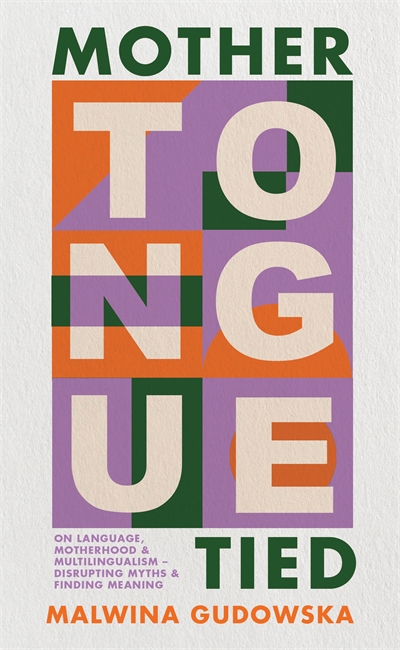Mother Tongue Tied
Malwina Gudowska
272 pages
Synopsis
'Brilliantly illustrates how multilingual mothers are disproportionately tasked with preserving linguistic heritage on one hand and preparing children for public society on the other - all while finding a language for their own new maternal identity' Eliane Glaser, author of Motherhood: A Manifesto
It is estimated that more than half of the world's population communicates in more than one language and over a third of the population in the United Kingdom is multilingual. And yet life in multiple languages is rarely discussed publicly, myths and misconceptions prevail and the pressure to keep heritage languages alive has become a private conflict for millions. Linguistic diversity is more prevalent than ever, but so is linguistic inequality.
Linguist Malwina Gudowska, herself trilingual, sheds light on the ways in which we navigate language, its power to shape and reshape lives, and the ripple effects felt far beyond any one home or any one language. It takes one generation for a family language to be lost. One generation - like mother to child. Mother Tongue Tied explores the emotional weight of raising multilingual children while grappling with your own identity and notions of home. At what cost does a mother save a language? Or does she let it slip away and, with it, a part of herself her children may never know.
It is estimated that more than half of the world's population communicates in more than one language and over a third of the population in the United Kingdom is multilingual. And yet life in multiple languages is rarely discussed publicly, myths and misconceptions prevail and the pressure to keep heritage languages alive has become a private conflict for millions. Linguistic diversity is more prevalent than ever, but so is linguistic inequality.
Linguist Malwina Gudowska, herself trilingual, sheds light on the ways in which we navigate language, its power to shape and reshape lives, and the ripple effects felt far beyond any one home or any one language. It takes one generation for a family language to be lost. One generation - like mother to child. Mother Tongue Tied explores the emotional weight of raising multilingual children while grappling with your own identity and notions of home. At what cost does a mother save a language? Or does she let it slip away and, with it, a part of herself her children may never know.
Edifying and enlivening, Mother Tongue Tied uncovers life in multiple languages, from one's own multilingual identity to the emotional toll of raising multilingual children. Well researched and easily digestible, Gudowska asks- at what cost does a mother save a language?Kate Baer, New York Times bestselling author of And Yet and What Kind of Woman
Mother Tongue Tied brilliantly illustrates how multilingual mothers are disproportionately tasked with preserving linguistic heritage on one hand and preparing children for public society on the other - all while finding a language for their own new maternal identity. A thought-provoking, political and empathetic bookEliane Glaser, author of Motherhood: A Manifesto
Gudowska writes with eloquence and tenderness from within the daily, sometimes heroic, often disheveled realities of multilingual mothering. Moving between intimate accounts and lucid criticism, she illuminates how multilingualism has been variously valorized, demonized, and romanticized by the dominant ideologies of society, and how the work of meeting linguistic ideals has consistently been borne by individual families, particularly mothers, rather than by the society that wields such conflicting expectations.Julie Sedivy, author of Memory Speaks: On Losing and Reclaiming Language and Self
